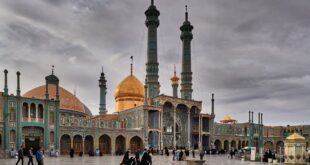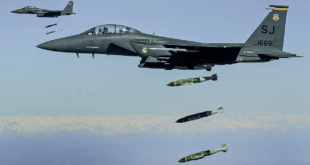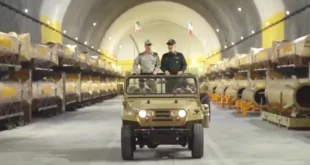TEHRAN (Reuters) — Iranian President Mahmoud Ahmadinejad on Thursday derided foes of Iran’s nuclear work as mentally disturbed, ignoring a fresh plea by UN Secretary General Kofi Annan for all sides in the dispute to calm their rhetoric.
Pursuing a diplomatic effort, European nations want to offer Iran security guarantees as a key incentive to freeze its uranium enrichment programme, but US officials say Tehran can expect no non-aggression pledge from Washington.
Iran insists its nuclear programme is only to generate electricity for civilian use. But Western countries believe Tehran is seeking a military nuclear capacity as well.
“Those who get sad at the progress and happiness of others are suffering from mental and psychological problems, so they should find a way to cure themselves,” the student news agency ISNA quoted Ahmadinejad as saying in a speech.
Since his election last year, the president has frequently needled critics of the Islamic republic’s nuclear programme, raising tensions with the United States and the European Union.
“We do not have a fight with anyone, but we will not step back on our absolute rights,” declared Ahmadinejad, who on Wednesday rejected an expected EU incentive package as an attempt to persuade Tehran to accept “candy for gold.” Annan urged those involved in negotiations over Iran’s nuclear crisis to moderate their language. “There is also a need to lower the temperature, and refrain from actions and rhetoric that could further inflame the situation,” he said in a speech to Tokyo University students.
Britain, France and Germany plan to offer Iran a package expected to include a European light-water reactor and some form of security assurances in return for a halt to enrichment.
But a senior Iranian nuclear official, Ali Hosseinitash, told Reuters on Thursday Tehran’s current focus was perfecting its small-scale research and development enrichment programme despite UN Security Council calls for it to be halted.
“Ending the dispute is valuable for everybody. But nuclear activities and capabilities are also valuable to us,” said Ali Hosseinitash, head of strategic affairs at the Supreme National Security Council, which is in charge of Iran’s nuclear diplomacy.
EU trio
The EU trio will discuss their proposal with senior US, Russian and Chinese officials in London next week.
Later on Thursday, Iranian chief atomic negotiator Ali Larijani met in Vienna with Mohammad Al Baradei, director-general of the International Atomic Energy Agency, to discuss ways to resolve the dispute, an Iranian official said.
EU officials say security guarantees are the major sticking point affecting their ability to produce a credible package.
European diplomats say only the United States can guarantee Iran’s security. But Washington refuses to do so.
The United States insists that any EU incentives for Tehran must be backed by a UN Security Council resolution threatening possible sanctions if Iran will not halt sensitive atomic work.
Annan urged Iran to “lift the cloud of suspicion” over its nuclear programme, but said he hoped sanctions could be avoided.
“It is my strong hope that the current discussions in the Security Council will give new momentum to the quest for a negotiated solution,” he said during a visit to Tokyo.
Russian Foreign Minister Sergei Lavrov told EU lawmakers in Strasbourg that Moscow remained doubtful sanctions would work.
Elmar Brok, head of the European Parliament’s foreign affairs committee, said after a closed-door hearing with Lavrov that he had also affirmed that a Russian proposal to enrich uranium on Iran’s behalf was still on the table.
Resistance from Russia and China scuppered efforts in the Security Council last week to agree a resolution paving the way for possible sanctions if Iran refuses to halt enrichment.
Lavrov said he would reserve judgement on the EU incentive plan until the details emerge at next week’s meeting in London.
In Geneva, the United States presented a draft global treaty to ban production of nuclear bomb-making fissile material.
Stephen Rademaker, acting assistant US secretary in the bureau of international security and non-proliferation, called for immediate negotiations aimed at agreeing a pact this year.
In a news conference, Rademaker singled out Iran and North Korea as countries to which the curbs, proposed to the UN-backed conference on disarmament, would apply.
 Eurasia Press & News
Eurasia Press & News



